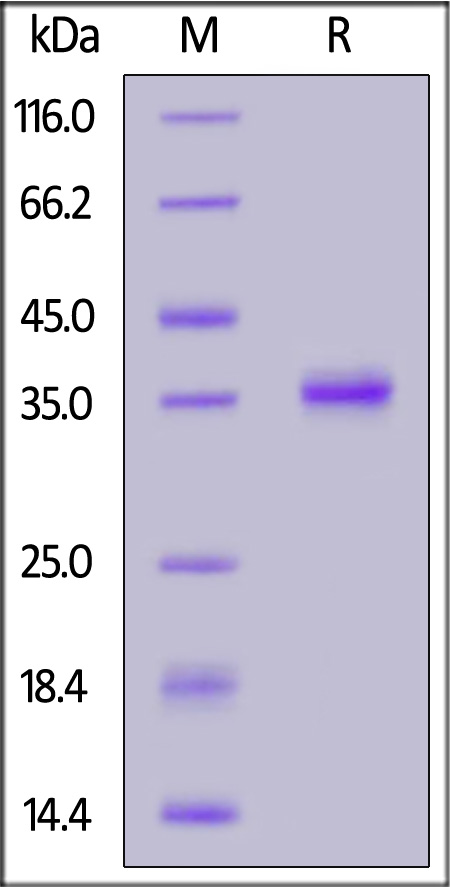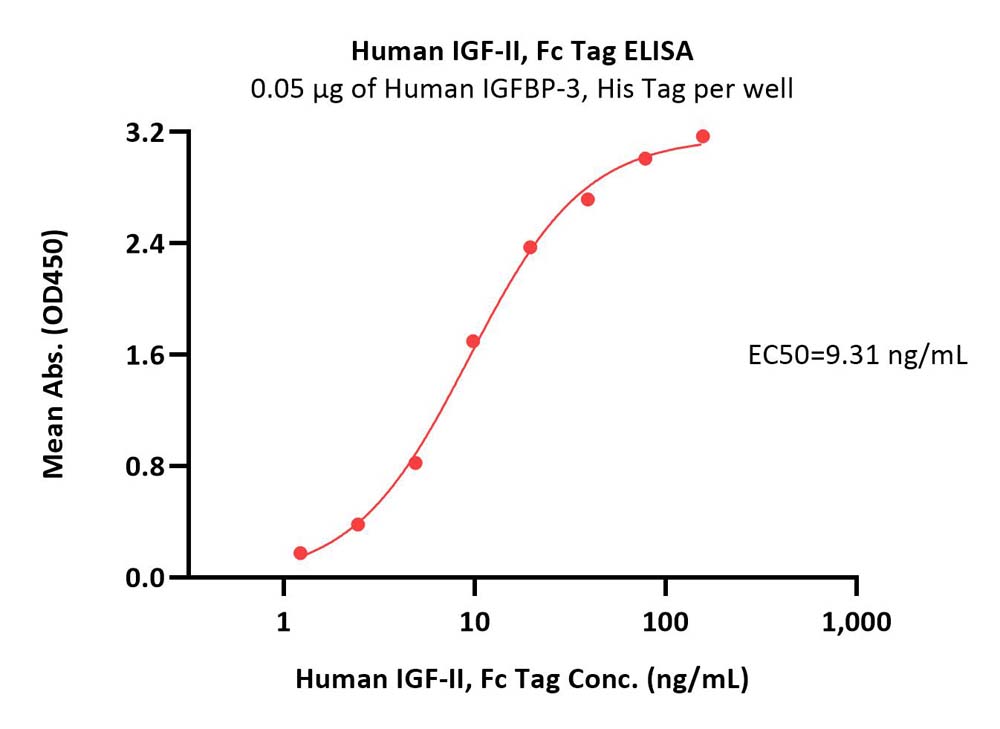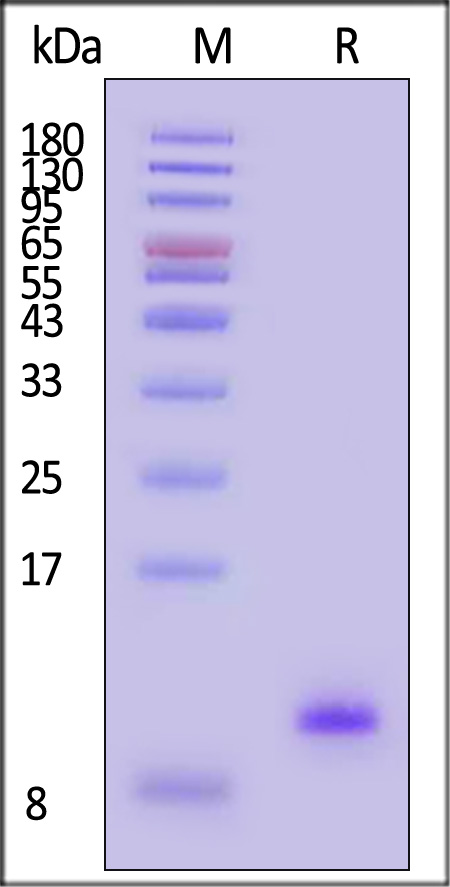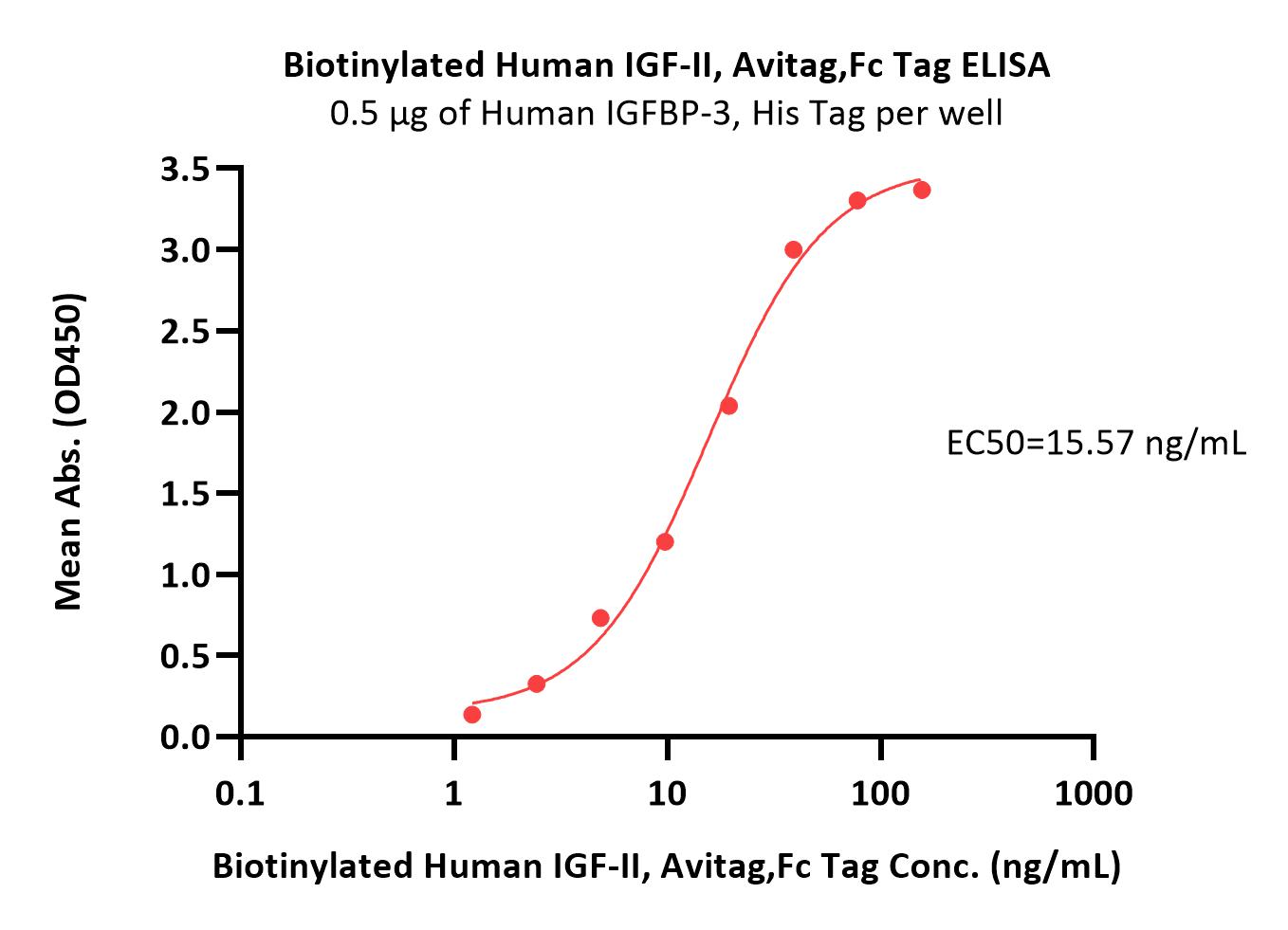IGF-II分子别名
IGF2,C11orf43,FLJ22066,FLJ44734,IGF-II,PP9974
IGF-II分子背景
Insulin-like growth factor 2 (IGF-2) is also known as Somatomedin-A, IGF-II, PP9974, and is one of three protein hormones that share structural similarity to insulin. IGF-2 exerts its effects by binding to the IGF-1 receptor. IGF2 may also bind to the IGF-2 receptor (also called the cation-independent mannose 6-phosphate receptor), which acts as a signalling antagonist; that is, to prevent IGF2 responses. The major role of IGF2 is as a growth promoting hormone during gestation. In the process of Folliculogenesis, IGF2 is created by Theca cells to act in an autocrine manner on the theca cells themselves, and in a paracrine manner on Granulosa cells in the ovary. IGF2 promotes granulosa cell proliferation during the follicular phase of the menstrual cycle, acting alongside Follicle Stimulating Hormone (FSH). After ovulation has occurred, IGF-2 promotes progesterone secretion during the luteal phase of the menstrual cycle together with Luteinizing Hormone (LH). Thus, IGF2 acts as a Co-hormone together with both FSH and LH. IGF-2 may play a key role in memory and could potentially be used to treat Alzheimer's Disease. It is sometimes produced in excess in islet cell tumours, causing hypoglycemia. Doege-Potter syndrome is a paraneoplastic syndrome in which hypoglycemia is associated with the presence of one or more non-islet fibrous tumors in the pleural cavity. has been shown to interact with IGFBP3 and Transferrin.






















 Star Ribbon预染蛋白Marker蛋白质标记物是生物研究和药物开发的重要组成部分。无论是用于蛋白质电泳还是western blot,我们的预染色蛋白质标记物帮助您快速确定目标蛋白质的分子量或评估转移效率。Fc受体蛋白治疗性抗体的功效取决于Fab片段及其对目标抗原的结合活性,还取决于Fc片段及其与关键Fc受体的相互作用。因此,在抗体工程中候选物必须针对一系列受体进行测试。探索我们的重组Fc受体蛋白质的全面收藏!
Star Ribbon预染蛋白Marker蛋白质标记物是生物研究和药物开发的重要组成部分。无论是用于蛋白质电泳还是western blot,我们的预染色蛋白质标记物帮助您快速确定目标蛋白质的分子量或评估转移效率。Fc受体蛋白治疗性抗体的功效取决于Fab片段及其对目标抗原的结合活性,还取决于Fc片段及其与关键Fc受体的相互作用。因此,在抗体工程中候选物必须针对一系列受体进行测试。探索我们的重组Fc受体蛋白质的全面收藏!































 膜杰作
膜杰作 Star Staining
Star Staining

























